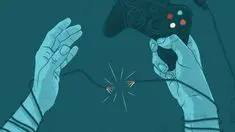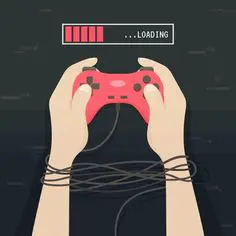
Unveiling the Warning Signs: Recognizing Gaming Addiction
- Admin
In the digital era, gaming has evolved from mere entertainment to a significant aspect of many people's lives. However, for some individuals, gaming can spiral into addiction, leading to detrimental effects on their well-being. Understanding and identifying the signs of gaming addiction is crucial for timely intervention and support. This article aims to shed light on the common signs of gaming addiction, helping individuals and their loved ones recognize when gaming has become a problem.
1. Excessive Preoccupation with Gaming:
A primary sign of gaming addiction is an overwhelming preoccupation with gaming activities. Individuals may spend a disproportionate amount of time thinking about gaming, planning their next gaming session, or fantasizing about achievements in their favorite games. This preoccupation can consume their thoughts, leading to neglect of other responsibilities and activities.
2. Loss of Control over Gaming Habits:
Individuals with gaming addiction often struggle to control their gaming habits, despite recognizing the negative consequences. They may find themselves unable to resist the urge to play, even when it interferes with work, school, or relationships. Attempts to cut back on gaming may prove futile, as they feel compelled to continue gaming compulsively.
3. Neglect of Personal Responsibilities:
As gaming takes precedence in their lives, individuals with gaming addiction may neglect important personal responsibilities. This neglect can manifest in various ways, such as poor academic or work performance, neglect of household chores, or failing to fulfill commitments to friends and family.
4. Escaping Reality Through Gaming:
Gaming addiction often serves as a means of escape from real-life stressors or challenges. Individuals may use gaming as a coping mechanism to numb difficult emotions, avoid confronting problems, or seek solace in a virtual world where they feel a sense of control or accomplishment.
5. Withdrawal Symptoms When Not Gaming:
Similar to substance addictions, gaming addiction can lead to withdrawal symptoms when individuals are unable to play. These symptoms may include irritability, restlessness, mood swings, difficulty concentrating, and even physical discomfort. The anticipation of these withdrawal symptoms can drive individuals to continue gaming compulsively.
6. Neglect of Physical Health and Hygiene:
Individuals with gaming addiction may neglect their physical health and personal hygiene in favor of gaming. They may spend prolonged hours sitting in front of a screen, skip meals or sleep to continue gaming, and neglect basic self-care routines such as showering or exercising.
7. Denial and Defensiveness:
Despite the negative impact of gaming addiction on their lives, individuals may exhibit denial or defensiveness when confronted about their gaming habits. They may downplay the severity of their addiction, rationalize their behavior, or become defensive when others express concern.
Conclusion:
Recognizing the signs of gaming addiction is crucial for individuals and their loved ones to seek help and support. If you or someone you know is exhibiting signs of gaming addiction, it's essential to reach out to qualified professionals for assistance. With early intervention and support, individuals can overcome gaming addiction, regain control over their lives, and cultivate healthier relationships with gaming and other aspects of life.
